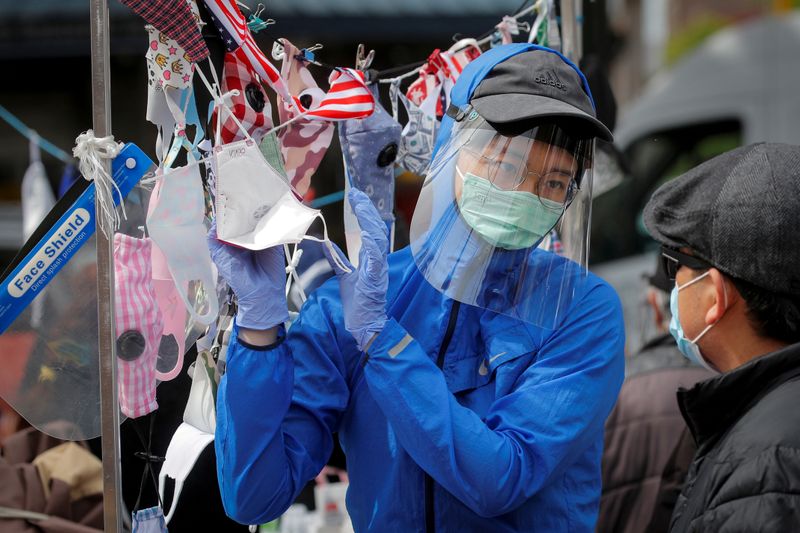(Reuters) – Here’s what you need to know about the coronavirus right now:
Spaniards ordered to wear masks
Spain has made it compulsory for all citizens, including children over six, to wear masks in public spaces as one of Europe’s strictest lockdowns gradually unwinds.
The Health Ministry order said the masks – whose efficiency in curbing the coronavirus is hotly debated globally – would be needed from Thursday for indoor public spaces and outdoors when impossible to keep a two-metre distance.
Some are getting weary of the restrictions: up to a few hundred demonstrators have been gathering every evening to bang pots and pans and call for the government’s resignation. Mainly in wealthy, conservative neighbourhoods, the protesters have often ignored social-distancing rules.
Cambridge University to hold lectures online
Britain’s Cambridge University became one of the first in the world on Wednesday to announce that all its lectures would be delivered online over the next academic year.
The university, which shut its campuses to students in March after the government introduced a strict lockdown to curb the spread of COVID-19, said teaching would be delivered virtually until summer 2021, although it was possible some smaller teaching groups might be able to occur in person.
Century-old tradition on track for change?
Advocates of shifting the start of the school year in Japan from April to September are seizing the moment with school closures due to the coronavirus to renew their call.
The proposal, which would finally bring Japan in line with many Western countries after a century of starting in April when the financial year also begins, has huge implications for corporate recruitment, including making it easier for foreign students to come to Japan and for Japanese to study abroad.
“It’s a golden opportunity,” said Kunihiko Miyake, research director at the Canon Institute for Global Studies, who said the change would reverberate through society.
Arise, Sir Tom
Captain Tom Moore, who became a national hero in Britain after raising more than 33 million pounds ($40 million) for the National Health Service in the run-up to his 100th birthday, is to be knighted.
Moore becomes “Sir Tom” after a special nomination from Prime Minister Boris Johnson.
The World War Two veteran raised the record sum by painstakingly completing 100 laps of his garden with the aid of a walking frame, becoming a symbol of British endurance in the face of the adversity of the coronavirus crisis.
Lighting Up The Skies
On a night not too far in the future but still being kept secret, skies across Japan will light up with simultaneous fireworks displays from north to south in a plan by fireworks makers to cheer a nation weary of battling the coronavirus.
Fireworks are a centuries-old tradition in Japan, where massive, colourful displays are a symbol of summer and draw hordes of people, many wearing bright summer kimono. They began as a way of warding off bad luck and epidemics.
(Compiled by Karishma Singh and Nick Tattersall, Editing by William Maclean)






















